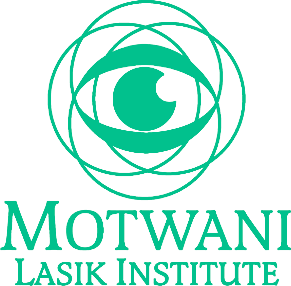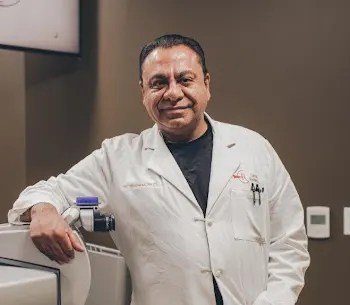Dr. Motwani’s exceptional expertise ensures that all side effects are treated, leading to short-lasting effects and preventing any permanence, allowing patients to enjoy improved vision and enhanced satisfaction. Dr. Motwani is able to treat and repair virtually all of the known LASIK associated problems or complications. Cornea Revolution, our corneal repair practice, is dedicated to repairing corneas and reversing damage from prior procedures. Dr. Motwani is the leading surgeon in the nation for successfully reversing damage and repairing the cornea.
9710 Scranton Road, Suite 170 | San Diego, CA 92121
8:30AM - 5PM (M-F)
What are the potential side effects and risks?
While LASIK is considered safe and effective, like any surgical procedure, it carries some risks. Potential side effects may include dry eyes, glare, halos, or difficulty with night vision, though these are usually temporary and improve over time. Serious complications are rare but can include infection or overcorrection/undercorrection of vision. Your surgeon will discuss these risks with you in detail before your surgery.
Can we treat both eyes in the same day?
Yes, LASIK is commonly performed on both eyes during the same visit. Treating both eyes simultaneously can provide quicker visual recovery and convenience for the patient.
What can I expect from my consultation?
At Motwani’s San Diego LASIK Institute, we prioritize your comfort and care. Our center is one of the most modern and comfortable in San Diego, and its inviting atmosphere decreases the stress of having a procedure on your eyes. The examination will likely be more thorough than at other laser centers, as Dr. Motwani conducts ongoing research for publication in peer–reviewed journals. This entails conducting extensive imaging to offer the best possible diagnostic. You can expect to receive expert insights and recommendations, as well as an opportunity to address any questions or concerns you may have about LASIK or other vision correction options, such as cataract surgery. Rest assured that we do not employ a high-pressure sales approach to promote unnecessary products or services.
How long does the surgery usually take?
LASIK surgery itself typically takes about 10 to 15 minutes per eye. However, you should plan to be at the surgical center for a few hours to complete pre-operative preparations and post-operative evaluations.
How long is the recovery after having LASIK?
The recovery period after LASIK surgery typically lasts around 12 to 24 hours, and most patients experience improved vision by the next morning or even later that day.. However, it’s essential to follow Dr. Motwani’s post-operative guidelines for a smooth and successful recovery.
Can I drive immediately after getting LASIK surgery?
Most patients experience some discomfort for about 6 hours (like a dirty contact lens in their eye), and blurred vision following their procedure. Most patients receive a mild relaxant such as Valium prior to their surgery, so they sleep through the discomfort and wake up the next morning able to see. Most patients for primary LASIK are able to drive the next day. It’s essential to follow the specific post-operative instructions provided by Dr. Motwani for a safe and comfortable recovery.
How long will vision correction last after my LASIK surgery?
LASIK provides long-lasting vision correction for the majority of patients. However, it’s important to note that your eyes can still change over time due to aging or other factors. Some patients may require enhancements or glasses for certain activities later in life.
Will I achieve 20/20 vision after getting LASIK?
While many patients achieve 20/20 vision or better after LASIK, results can vary. Factors such as your initial prescription, corneal thickness, and healing process can affect the outcome. Your surgeon will discuss realistic expectations based on your individual circumstances.
What is the difference between LASIK & PRK surgeries?
LASIK (Laser-Assisted in Situ Keratomileusis) and PRK (Photorefractive Keratectomy) are both laser eye surgeries that correct vision problems by reshaping the cornea. The main difference is in how the surgeon accesses the cornea: LASIK: A thin flap is created on the cornea, which is lifted to allow the laser to reshape the underlying corneal tissue. The flap is then repositioned. PRK: The outer layer of the cornea (epithelium) is removed completely before the laser treatment, allowing direct reshaping of the cornea’s surface. LASIK typically offers faster recovery and less discomfort compared to PRK, but not everyone is a candidate for LASIK due to factors like corneal thickness and other eye conditions.


Recent Comments